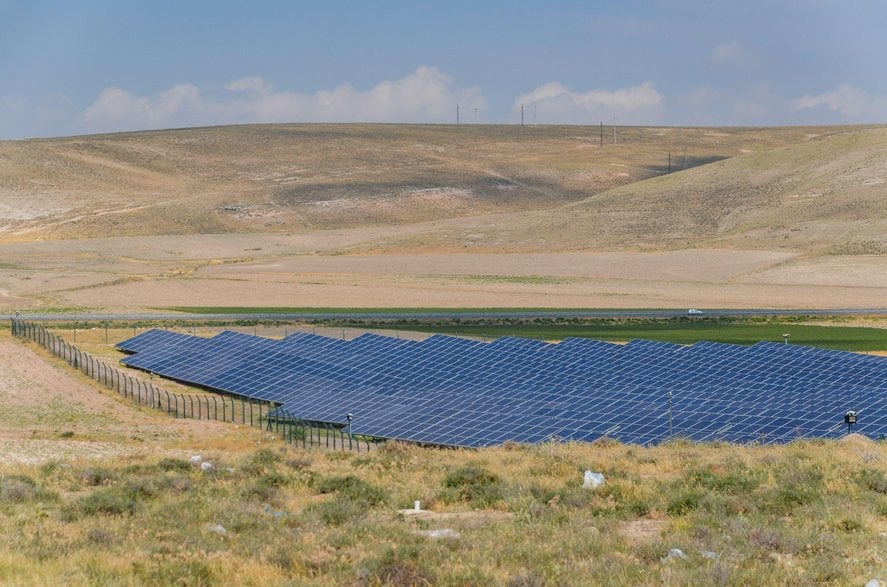Solar surge: Meeting two-thirds of the rise in Türkiye’s peak electricity demand in 2024 | Ember
Solar energy is becoming a central pillar of Türkiye’s energy strategy, especially for meeting peak demand efficiently. While the global solar market is projected to add 593 GW of new installed capacity in 2024 (a 29% increase from 2023), new solar investments in Türkiye have played a significant role in meeting the 2024 peak demand.
Despite rising cooling needs and electricity demand, the steady increase in the share of peak demand met by solar energy highlights its growing importance as a critical solution in Türkiye’s electricity system. Solar energy not only reaches its maximum production capacity during the hours when cooling demand is at its highest, but it also offers additional benefits.
Solar’s stable costs, unaffected by volatile fossil fuel prices, ensure predictable electricity bills for consumers. Moreover, solar energy directly reduces Türkiye’s dependence on energy imports, helping to lower its current account deficit.
In 2024, Türkiye avoided investing in approximately 16 GW of fossil fuel capacity thanks to its solar installations (see Methodology). As solar energy technologies continue getting cheaper, electricity generation at lower costs relative to fossil fuels is becoming increasingly possible. This not only reduces carbon emissions, but also brings substantial savings to the Turkish economy by lowering electricity production costs.
In addition, self-consumption applications enable electricity to be used directly where it is produced, avoiding potential energy losses in transmission and distribution lines. Consumers meeting their own electricity needs through self-consumption rather than relying on the grid also help prevent regional peak demand increases. This improves overall grid efficiency, reduces the need for additional infrastructure investments, and lowers grid operating costs. In this context, Türkiye’s rooftop solar potential of at least 120 GW offers a significant opportunity to enhance energy security.
While solar energy plays a crucial role in meeting midday peak demand, Türkiye could further optimise its solar potential by integrating it with storage systems, making the consumption curve more balanced and manageable. Storage would extend the effectiveness and usage time of solar energy, simplifying grid management and enabling surplus renewable energy to be stored and used during high demand hours in the future.
Türkiye already has over 14 GW of solar energy capacity with storage in pre-licensing stages, far exceeding the 2030 target of 2.1 GW outlined in the National Energy Plan. The realisation of this capacity will enhance the flexibility of Türkiye’s energy grid and facilitate the integration of even more solar capacity into the system by storing future excess generation for use when needed.



